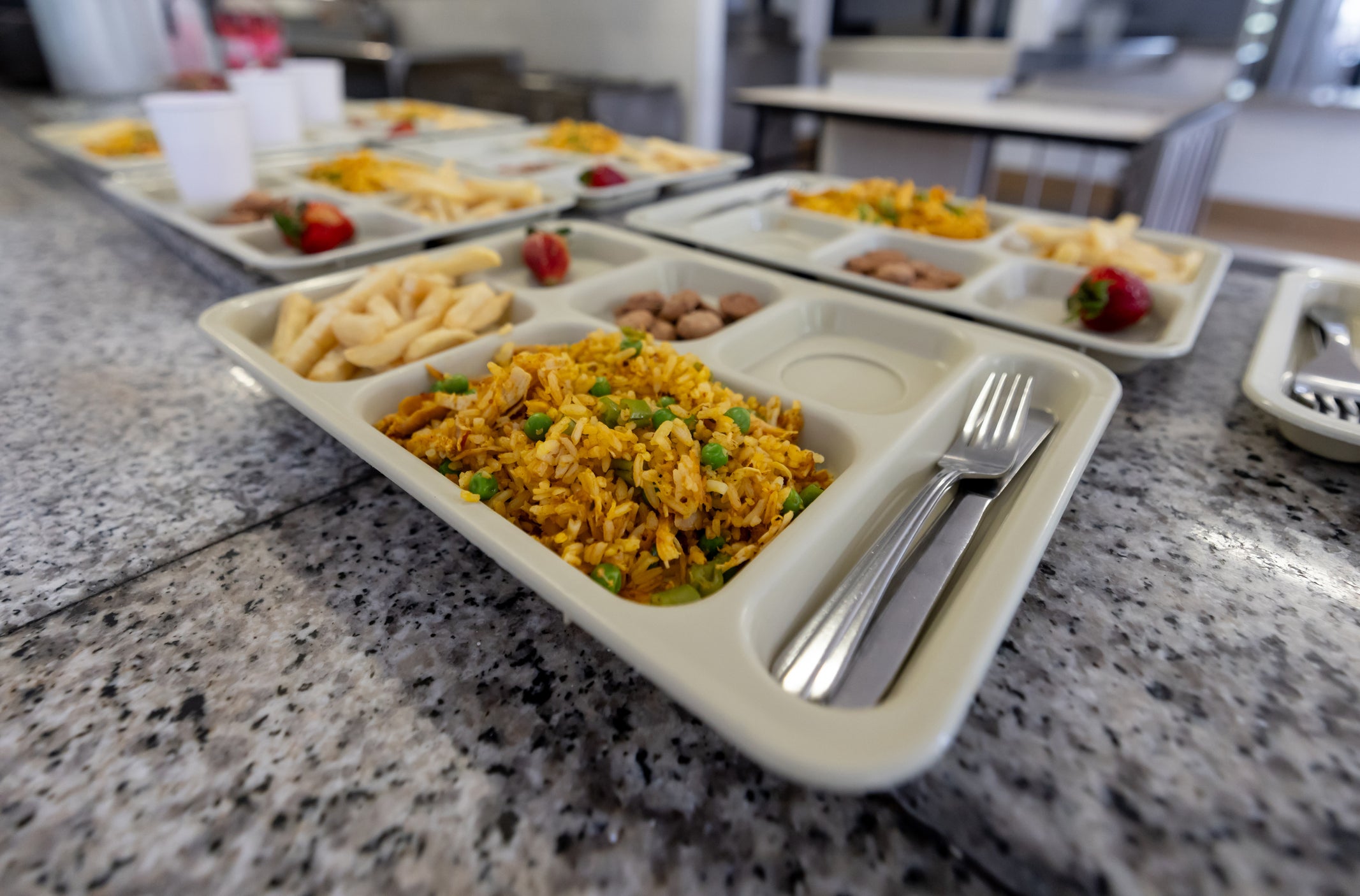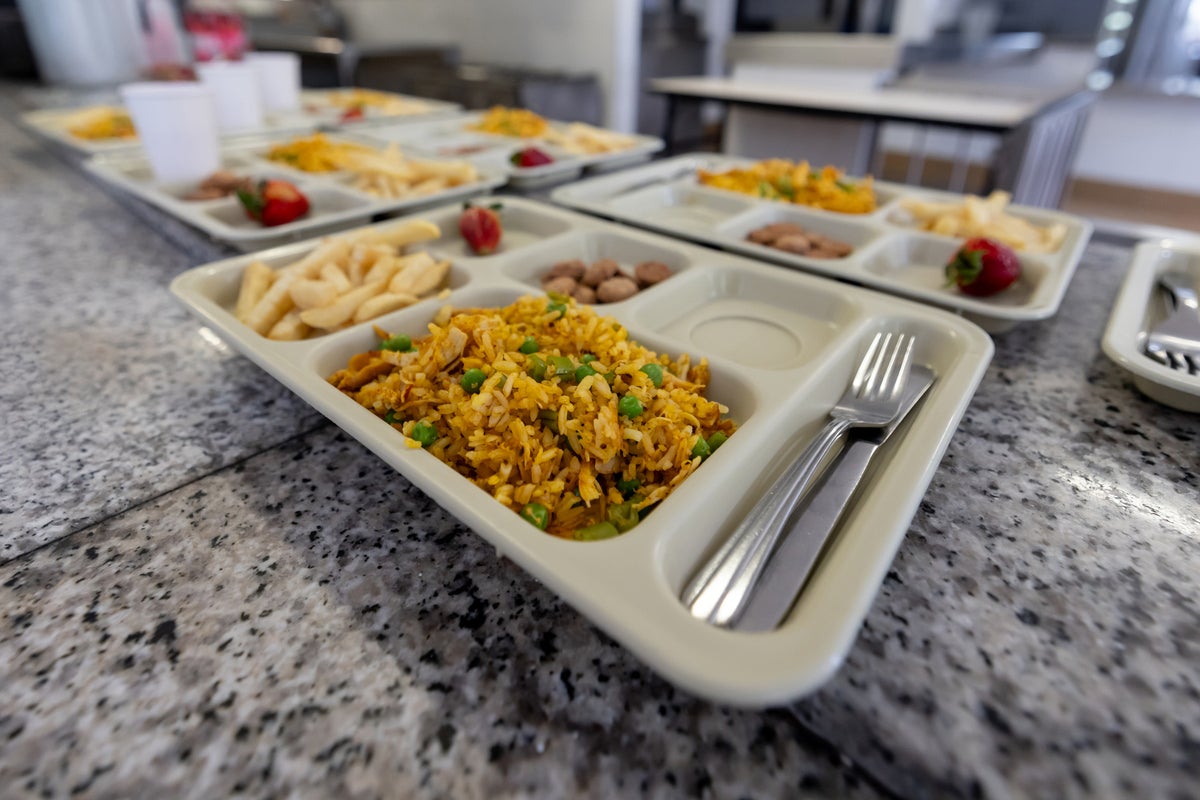“There is often half the month where I’m making ends meet with my credit card,” confessed Kirsty, a single mother of three. “Money runs out quickly.”
She claims Universal Credit and the youngest of her children attends pre-school three days a week, so requires a packed lunch. “I often will spend £10-plus on lunchbox items every few days topping up bread, cheese, butter, crisps, yoghurts, fruit… It adds up very quickly to a very scary amount.”
And this situation is likely to continue for hundreds of thousands of disadvantaged young children despite government plans to expand free school meals next year, according to a new report.
Around 290,000 children under five are set not to receive free meals as the expansion will not extend to most nurseries and childcare settings, experts from food policy research group Bremner & Co found.
Sponsored by The Food Foundation, Impact on Urban Health and the Early Years Food Coalition, the report finds that this will create a “stark disparity” between childcare settings, urging the government to ensure the policy reaches all children.

While nearly 30 per cent of pupils in schools will receive free school meals after the expansion to include all Universal Credit households from September 2026, researchers found that only 4 per cent of children in formal childcare will receive the same provision.
These will only be children who attend a state-funded early years setting full-time and are successfully registered for the meals. After the expansion, the number of children in these settings provided for is expected to rise from 24,000 to 39,000 – far fewer than the number who will miss out.
Charlotte March, 37, from Essex, is a single mother of a three-year-old at a private nursery. Working part-time, she claims Universal Credit, but finds herself with a large nursery bill at the end of the month due to having to pay for the meals they provide.
“I have no choice but to pay for the meals. Even though it would be cheaper for me to provide them myself but the nursery doesn’t allow this due to allergies, which I totally understand,” she explained.
Several nursery workers interviewed for the research said they feed eligible children out of their own budgets, in one case leading to a deficit of £70,000 a year. However, it is unlikely many settings are able to continue doing this, as the sector increasingly warns of dire funding shortfalls.
Sharon Hodgson, Labour MP and chair of the school food all-party parliamentary group, said: “It is astonishing that in 2025, so many of our youngest children are missing out on free meals simply because of where they are cared for.
“Ministers must consider this disparity and take action to ensure every child has access to a healthy meal, no matter the setting or the paperwork involved.”

Alongside extending free school meals to all children in Universal Credit households regardless of childcare setting, researchers recommend introducing automatic registration to ensure no child can miss out if eligible.
Labour MP Simon Opher said: “Extending free meals to all children in Universal Credit households and making enrolment automatic is a simple, fair and cost-effective step that will transform lives by lifting thousands out of poverty.”
Liberal Democrat MP Jess Brown-Fuller, meanwhile, called the findings “shocking”, urging the government to review its policy.
The research comes as child poverty in the UK continues to reach record levels. Latest statistics show that three in ten children in the country are now living in poverty, rising from 4.3 million to 4.5 million between 2023 and 2024.
This rises slightly to 36 per cent of families with their youngest child under five living in poverty, the Bremner & Co report finds.

It is likely these figures – last record in the year to April 2024 – have risen in the time since, with experts from the Child Poverty Action Group (CPAG) estimating that 109 children are pulled into poverty every day due to the impact of the two-child benefit cap.
This is the controversial Conservative-era policy that prevents parents from claiming Universal Credit for any child beyond their second, which the government has so far refused to bow to pressure to scrap. In recent weeks Labour ministers, including education secretary Bridget Phillipson, have indicated it may be abolished by 2026.
Dr Hannah Brinsden, head of policy and advocacy at The Food Foundation, said: “It is a huge oversight from the government that while they have taken the positive step to extend Free School Meals to all school children whose families are on Universal Credit, there are still nearly 300,000 vulnerable toddlers living in Universal Credit households who are missing out.
“This needs to be urgently rectified if the government is to prove it is serious about giving children the best start in life and raising the healthiest generation of children ever.”
A Department for Education spokesperson said: “Through our Plan for Change, this government has taken a historic step to tackle the stain of child poverty – offering free school meals to every single child from a household that claims Universal Credit.
“The new entitlement will see over half a million more children able to benefit from a free meal from next school year and lift 100,000 children out of poverty.
“As part of the expansion, we have announced that children in school based nurseries whose household is in receipt of Universal Credit, will be eligible for free meals from September 2026.”



